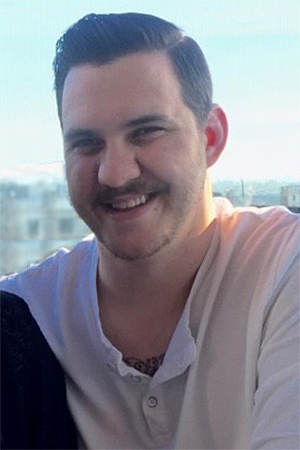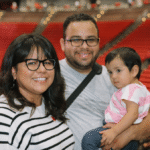
Adam O’Neill
After a brief career in marketing — first for a medical device company in Connecticut, then in the audio visual and staging industry in California — Adam O’Neill wanted a new career path but felt “a little lost.” Then a friend came to town for a visit, fresh out of the Navy.
“We got to talking about what I was going to do next, and I told him that I wish I had pursued the construction field in college instead of business,” said O’Neill, who earned a bachelor’s degree in business marketing from Central Connecticut State University. “This is where the conversation took a turn and he told me how he began taking classes in construction management to earn a certificate. I never heard of these certificate programs, so the next day I started researching schools, and I preferred a local university since San Diego is where I currently live, and where I would be looking for work. This is when I found the program at SDSU.”
SDSU’s College of Extended Studies offers five online construction certificate programs, and O’Neill completed three: Construction Project Management, Construction Estimating, and Construction Practices. (The other two programs are Civil Sitework and Construction Supervision.)
“Since there’s a little overlap, it made it worth it to take a few more classes to get all three,” said O’Neill, who answered a few questions about the program, and how it led to his current job as an estimator for Neal Electric Corp. in Vista.
How did the internship opportunity come about?
This is where it paid off that I decided to go to a local university. SDSU does a great job of sending out job opportunities from local construction companies. Being local gave me a huge advantage because most of my classmates were either in careers using the certificates to advance in their company, or they weren’t local to San Diego. I had been back home in Connecticut for a wedding when I received an email from SDSU for an opportunity to be an electrical estimator intern. I immediately jumped on the opportunity, and shortly after returning to San Diego had an interview. Shortly thereafter, I was hired.
How did that parlay into a full-time job?
The company needed full-time estimators and I was really just in the right spot at the right time. I got along with everyone and had great co-workers and bosses, I accepted the full-time position as I was finishing up my last certificate, and I was an intern for only four months.
How does that experience speak to the program’s networking opportunities?
It is great. The fact that the university has a great reputation and quality graduates really is what got me this opportunity. In my interview with my boss, he had stated that he reached out to the university because previous interns he had from SDSU were so great.
How feasible was the workload when you were earning your certificates?
When I started the program, I had just left my marketing job so I wasn’t working full time. I would Uber to make some cash, which was a flexible work schedule. But once I started interning, I was finishing up my last certificate and taking four classes and it wasn’t too bad. I would usually get a little reading done at my lunch break, or respond to the class discussions and then commit a few hours after work to reading and homework. You have to put in work every day, but most classes have staggered deadlines so it’s rare all four classes would have something due on the same day.
Can you speak to the caliber of SDSU’s instructors?
They were clear and to the point of what they expect in class, also very accessible if you had questions or needed further feedback. Overall, they were very helpful and approachable.
How much interaction did you have with fellow students and what did that add to your experience?
There’s a lot of interaction with your classmates and it’s great. For me, having a little background in construction was good, but having your classmates as resources was so useful. Every student’s experience is different — some are learning and others have been in construction a long time and have great insight and examples of what to expect, and challenges they overcame. So there’s a lot of take-away from everyone’s real-life experiences.
What do you think are the SDSU program’s biggest strengths?
I think the first one would be the program’s flexibility. It’s fairly easy to fit this program into your life, as it takes into consideration that you’re most likely working full time while working toward these certificates. The second would be the instructors and students. They all bring so much knowledge and experience, it really helps you grasp construction concepts and methods. Lastly, the program, in my eyes, is very affordable.
Do you have any advice for others seeking to enter or advance in the construction industry?
The construction industry is in a great spot right now and there’s a lot of career growth available. I believe this program gives a great base to start a career as I did, but also if you’re looking to advance, it also gives those tools as well.
Anything you’d like to add?
I couldn’t be happier with the path I chose. I’m grateful SDSU offers programs like this and I’m looking forward to my future in construction and where it will take me.




